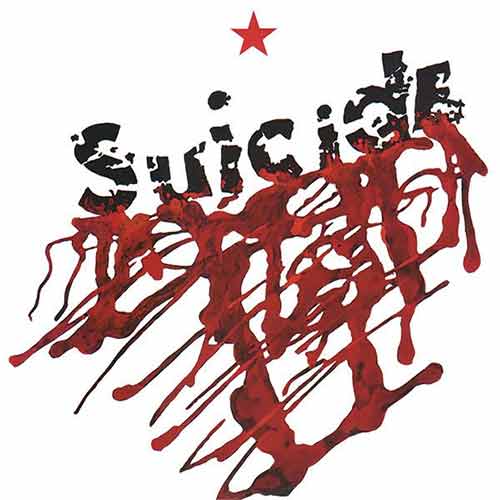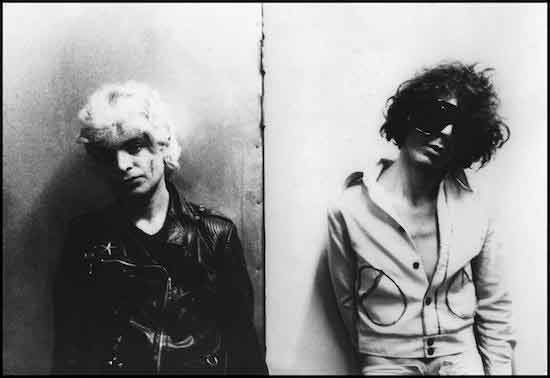
Suicide, Suicide (Mute/BMG)
‘Frankie’s Deeeeeeeeaaaaad’ wailed the radio, ‘Let’s hear it for Frankie’. It’s the late 1970s, it’s the middle of the night on an island in the Outer Hebrides, and someone’s transistor radio is tuned to John Peel or someone else playing obscure new music. It’s good stuff, but this ten minute song is scary beyond belief: the darkness around our campsite turns blacker as Frankie’s corpse turns to dust and the singer pursues his mournful narrative through echoing wails and shrieks. It feels even further than it is from the London suburbs where we all come from, and maybe staying up all night to see the sunrise wasn’t such a good idea after all.
But, hey, we survived. My friend Hamish even went and bought the album when we got back, and what a weird album it was/is. This is a New York city trash version of punk, cyber-rockabilly, an edgy lo-fi Orchestral Manoeuvres in the Dark, a we-don’t-give-a-shit finger up at whoever was or wasn’t listening. The duo had formed back in 1970 and spent years offending audiences alongside the likes of the New York Dolls, a kind of glam punk designed to offend, transgress and confuse.
Somehow they made it through to the second half of the 70s and ended up sharing the same universe as the CBGBs bands (Television, Patti Smith, the Ramones, Talking Heads and Blondie) emerging at the time. These bands’ audiences didn’t much like Suicide’s music either, or their grungy street personas and onstage antics such as singer Alan Vega waving a motorbike chain over his and the audience’s heads. Vega’s ‘singing’ often amounted to little more than shouting or mumbling over basic drum machine beats and organ &/or synthesizer riffs provided by Martin Rev.
Red Star Records, a New York indie label, would issue the duo’s debut LP, although bigger record labels such as Blast First and Mute would later sign the band and release their later albums. These were slicker, more polished affairs, that quite frankly weren’t a patch on this astonishing original debut. Suicide sounded dangerous from the word go, and probably were. They were renowned for winding-up audiences to the point of mini-riots; in fact some reissue versions included ’23 Minutes Over Brussels’, which documented one such occasion.
They seemed to thrive on confrontation. Touring with the Clash they were delighted that the posh-boy band’s audiences couldn’t cope with them, seemed to take being bottled off as a kind of achievement. You can see why, since this album is still difficult – but wonderful – listening. It’s full of hisses, noise, echo, out-of-kilter rhythms, bad taste and impenetrable vocals. It’s epic, from the opening ‘Ghost Rider’ onwards. Just as you get a handle on a song, or imagine you have, it interrupts itself and shouts abuse at you. So flickers of an imaginary demented Elvis song turn into aural sludge, or hysterical echoes, or a lone electric drum beat. ‘Frankie Teardrop’ is still the highlight of the album, although the closing ‘Che’ acts as a sinuous, sibilant epilogue, a white noise finale to this astonishing album. It’s still as raw and original as it ever was; and you should own a copy.

Rupert Loydell
